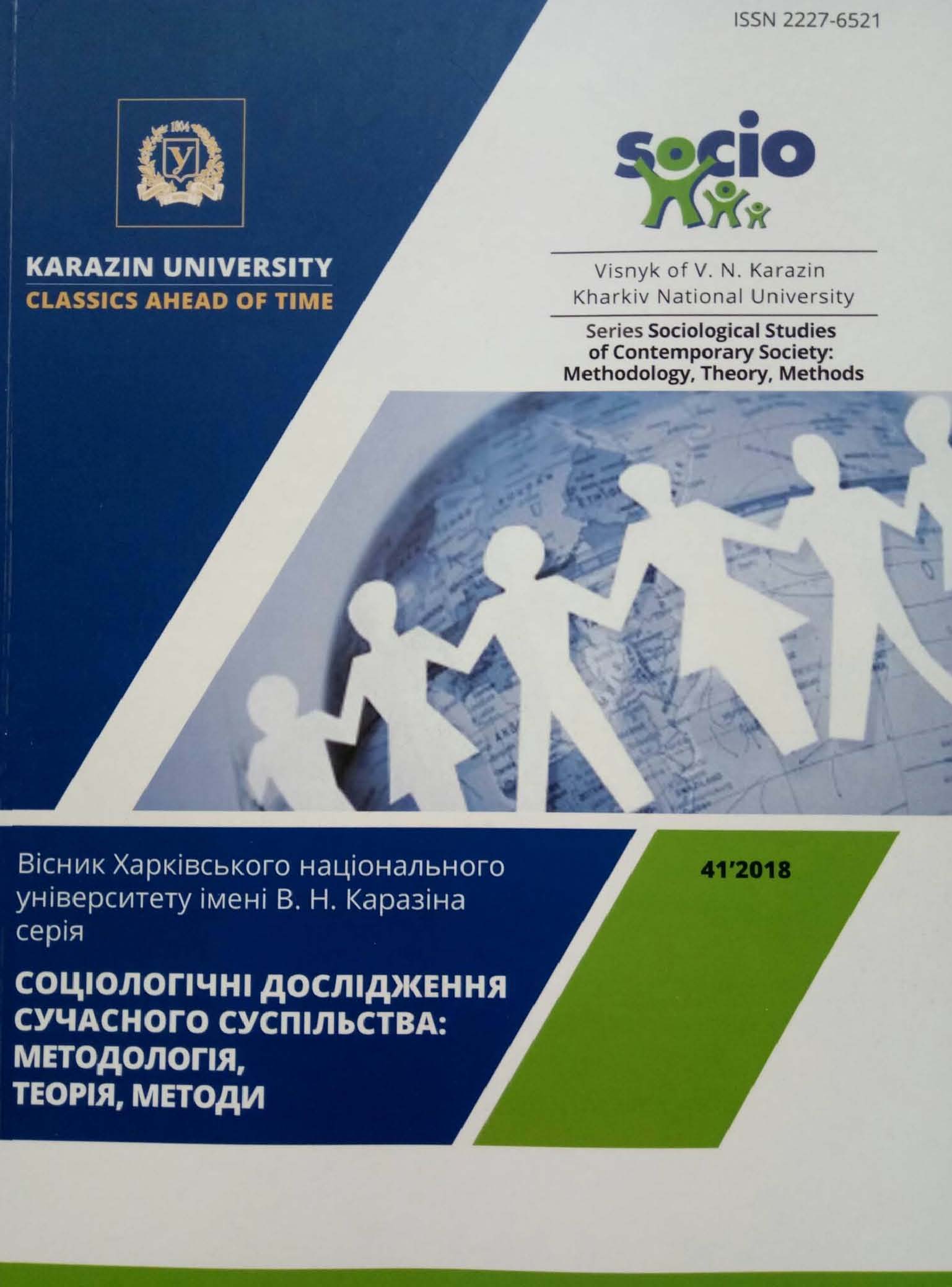Changing a Paradigm of Conflict Research in a Second Modern
Abstract
The article analyzes the main models of the conflictological paradigm, namely dyadic and triadic models of conflict. The first is associated with the name of K. Marx and characterizes the First Modern, and the second - the triadic connected – with G. Zimmel, V. Bühle and to a greater extent relates to the Second Modern. In the context of the dyadic model, the conflict occurs between two social groups, while the main reason for their confrontation is highlighted. The triadic model is based on Simmel's idea that three parties can participate in the conflict, and presupposes, in this connection, the ambiguity and plurality of its subjects and causes. Its main thesis: 1) the heterogeneity of the conflicting parties, the complexity of relations within the group involved in the conflict; 2) multidimensionality of the conflict, which simultaneously occurs at different levels; 3) different functions of the conflict; 4) multipolarity of the social space, with different coalitions and with a third party; 5) the conflict should not be considered as a zero-sum game. An important aspect is the understanding of the essence and attitude to social and political revolutions, the crises in the classical and the modern age. Transnationalization and hybridization of the world's space raise the question of the need for topical studies of globalization, as well as conflicts and crises that are being lethal under its influence in modern societies.
Downloads
References
Вебер М. Социология религии. Избранное. Образ общества. М.: Юрист, 1994. С. 78–308.
Тернер Дж. Структура социологической теории / пер. с англ. О. С. Гавриш, З. В. Каганова, В. Г. Осипова, Н. В. Перцова, В. М. Погостина, А. В. Шкаликова. М.: Прогресс, 1985. 472 с.
Зиммель Г. Социальная дифференциация. Социологические и психологические исследования / М.: Юрист, 1996. Т. 2.: Георг Зиммель. Избранное. Созерцание жизни. С.301-466.
Simmel G. Soziologie Untersuchungen uber die Formen der Vergesellschaftung. Leipzig, 1908.
Buhl W. Theorien sozialer Konflikte/ Darmstadt: Wiss. Buchgesellschaft, 1976. 178 s.
Дарендорф Р. Современный социальный конфликт. Очерк политики свободы / пер. с нем. М.: Российская политическая энциклопедия, 2002. 288 с.
Dharendorf R. Auf der Suche nach einer neuen Ordnung. Vorlesungen Zur Politik der Freiheit im 21 jahrhundert/ Munchen.: Verlag C H Beck oHG, 2003. 156 s.
Бек У. Власть и ее оппоненты в епоху глобализма. Новая всемирно-историческая экономия / пер. с нем. А. Б. Григорьева, В.Д. Седельника. М.: Прогресс-Традиция, 2007. 464 с.
Robinson W.I. A theory of global capitalism/ Production, class and state in a transnational world/ Baltimore, London; Jons Hopkins University Press, 2004. 200 p.
Robinson W.I. Latin America and Global Capitalism: A Critical Globalization Perspective Jons Hopkins Studies in Globalization, Baltimore; Jons Hopkins University Press, 2008. 412 p .
Петренко І.І. Транснаціоналізація аналітичних центрів у процесі глобалізації Science and Education a New Dimension. Humanities and Social Sciences. 2017. V(24). I.146. P.24-28.





